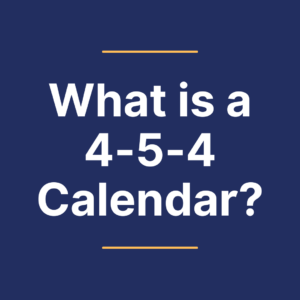“Why is Walmart refusing to pay the full amount of this invoice?”
Walmart suppliers research that question every month. As the company initiates more programs to improve supplier accountability (On Time In Full, Supplier Quality Excellence Program, etc.), deductions and fines are becoming more prevalent.
When Walmart feels a supplier has not met the terms of a purchase order or invoice, it deducts a portion of the payment based on the circumstance. Walmart notifies suppliers why they are being penalized using deduction codes.
Most Common Walmart Deductions
While there are many deductions that can be issued from Walmart, most suppliers will only see a few over and over again. Some of the most common ones include:
Download the Full List of Walmart Deduction Codes HERE
Code 10: Allowance Difference as Documented
Code 10 Allowance difference happens when what is in the order does not match what is on the bill. These mistakes can be for situations such as how much you ordered, how much it costs, or how it is packaged.
Can it be disputed?
- One option is the Accounts Payable Disputes Portal (APDP). This is a platform in which you can work out disagreements about payments.
- Another avenue is reaching out to your Merchant Team.
Having the right documentation can make a big difference in sorting out these disputes. If you’re claiming that allowances or discounts were not applied correctly, you’ll need to provide detailed records showing what was agreed upon versus what was actually charged on the invoice.
Similarly, if there’s a discrepancy in the quantity of items received compared to the number that was supposed to be sent, thorough documentation highlighting these differences can help resolve the issue more quickly. So keeping good records can be key in getting things sorted out smoothly.
Claim Code 11: Understanding Price Differences and How to Address Them
Code 11 happens when there’s a gap between the cost of an item stated in the purchase order (or what’s listed in the store’s inventory) and what actually is listed on the invoice.
Can it be disputed?
- If you know the Code 11 was filed by mistake or there was an error in Walmart’s processes, you can use the Accounts Payable Disputes Portal (APDP) to dispute.
- Buyer Payback: In some cases, if a buyer agrees, you might be eligible for a payback. This means you could get some money back if there was an overcharge. But remember, this payback can only happen if the buyer gives the approval and the buyer submits a request for it.
When you’re dealing with a Code 11 dispute, having the right documentation is crucial. Make sure you have written records like emails or any other documents showing any changes in pricing or agreements on discounts or allowances during the specific time period in question.
Code 13: Substitution Overcharge
Walmart will issue a Code 13 when a supplier invoices for one item number but Walmart receives a different item number. If the item billed on the invoice is at a higher cost than the merchandise received, the supplier will be issued a Code 13 for the difference in cost.
Can it be disputed?
Yes, but not easily. To dispute the deduction, go to Retail Link® and enter the supporting documentation in the Accounts Payable Disputes Portal (APDP). This includes the bill of lading, invoice, and proof of delivery.
Code 21: Concealed Shortages
Sometimes, when shipments are received, issues with the merchandise might not be immediately apparent. These are called concealed shortages and they can be categorized into three types:
- Inner Carton Shortages: This refers to shortages within the smaller boxes or cartons contained within a larger shipment.
- Inner Pallet Shortages: These are shortages found within the layers or sections of merchandise stacked on a pallet.
- Partial Supplier Pack: This occurs when only part of the supplier’s intended packaging is present in the shipment, leading to a shortage of items.
Can it be disputed?
If you need to dispute a claim, you can use the Accounts Payable Disputes Portal (APDP). However, please note that for this particular claim code, Walmart asks suppliers to refrain from reaching out directly to the buyer. To support your dispute, you’ll need to provide proof of delivery.
For store disputes, this should include the invoice or PO number, along with a delivery address that matches. If it’s a warehouse dispute, your proof of delivery should include a POD (Proof of Delivery) signed for in eaches.
Code 22: Merchandise Billed Not Shipped
As its name suggests, Code 22 is issued when Walmart does not receive all the items it is billed for on the invoice. For example, if a store or distribution center receives 40 cases but the invoice is for 45 cases, a Code 22 will be issued for the 5 outstanding cases.
Can it be disputed?
Yes. To dispute the deduction, the supplier needs to show that all invoiced items were shipped by going to Retail Link® and entering the information in the Accounts Payable Disputes Portal (APDP).
Code 24: Carton Shortage/Freight Bill Signed Short
A Code 24 is issued when an order is signed short by the store or distribution center. In other words, a bill of lading shows there is more merchandise than actually arrived in the shipment. Therefore, the POD is stamped as short.
Can it be disputed?
Yes. To dispute the deduction, go back to the Accounts Payable Disputes Portal (APDP) in Retail Link®.
Code 25: No Merchandise Received for Invoice
If suppliers receive a Code 25, Walmart is claiming it received absolutely no merchandise on the invoice. This code is commonly issued when the invoice is sent too early and arrived before the shipment of merchandise.
Can it be disputed?
Yes. To dispute the deduction, enter the supporting documentation in Accounts Payable Disputes Portal (APDP) in Retail Link® (invoice, bill of lading, purchase order number, proof of delivery, etc.). However, do not issue a second invoice! This will be considered duplicate billing and a Code 30 will be issued.
Code 30: Duplicate Billing
This occurs when two invoices are submitted for an identical purchase order.
Can it be disputed?
Use the Accounts Payable Disputes Portal (APDP). Just remember, for this specific claim code, you shouldn’t reach out to the buyer directly. To back up your dispute, you’ll need proof for each invoice. This might include a freight bill to show that the order was delivered completely.
If you are a collect supplier, you’ll need a signed Bill of Lading with the driver’s signature, clearly showing the purchase order number. For prepaid suppliers, a signed Proof of Delivery indicating the order was received in full, with the purchase order number clearly listed, is necessary.
Code 80: Cash Discount
Please refer to your Supplier Agreement for the specific terms and conditions related to Payment Terms and Cash Discounts applicable to your company’s invoices. Cash Discounts are reductions offered for early payment terms as agreed upon in the Business Terms Section of your Supplier Agreement (for example, 1% discount for payment within 10 days, net payment within 30 days).
Can it be disputed?
Cash Discount is not disputable through APDP. If you believe there’s an error regarding Cash Discounts, you can request a Buyer Payback through your merchant.
Additionally, please provide a copy of the fully executed Supplier Agreement and documentation of any agreements for alternative terms.
Code 87: Other Difference
This claim is created when none of the other claim codes are applicable. Not ensuring accurate and correct information is entered into the systems (item file management) can lead to various issues such as multiple errors within the invoice, including missing details, or unauthorized charges.
Can it be disputed?
You can dispute via the APDP (Accounts Payable Dispute Portal), particularly if it pertains to pricing issues that necessitate a buyer payback.
Download the Complete List of Walmart Deduction Codes and High Radius Reason Codes
This FREE downloadable resource was designed to give Walmart suppliers the information they need to stay on top of Walmart’s accounting codes. It’s a valuable and practical tool for every accountant and bookkeeper working with Walmart as well as those team members responsible for supply chain management.
Allowances
While deductions may be unexpected to the supplier, allowances should be discussed well in advance.
An allowance is an agreement between Walmart and the supplier to meet specific terms for a cost discount. For example, the supplier may give Walmart a lower price for large bulk purchases of product. This would show up as an allowance and not a penalty.
It is very important to review your agreement with Walmart and anticipate allowances during the billing cycle. Many times suppliers forget Walmart is holding out an allowance and try to dispute. The suppliers’ accounting departments need to be aware of all allowance terms to save time in processing.
Can Walmart Deductions Be Disputed?
If a supplier feels they have received a Walmart deduction or penalty in error, most can be disputed (examples above). Any dispute needs to be thoroughly researched and backed with appropriate documentation before submitting it to Walmart.
The hardest Walmart fines to dispute relate to On Time In Full (OTIF). Walmart takes a no-tolerance approach to merchandise arriving at its facilities late, early, and short on quantity. In rare instances, Walmart has waived OTIF penalties due to extreme weather, national catastrophes, and other large-scale impacts.
Conclusion
Receiving a deduction or penalty from Walmart does not have to be viewed as a negative. These Walmart fines can be indicators of where a supplier needs to make improvements in the supply chain to grow their business.
8th & Walton has a staff of experts to assist you with your accounting concerns as well as all aspects of your relationship with Walmart. The goal is always to help you become a better partner with Walmart. Researching documentation for disputing a deduction can be overwhelming. The accounting team at 8th & Walton can help. If you have questions about deductions, invoices, and other accounting procedures, request a free consultation with our experts.
Complete the form below to schedule your free consultation.



